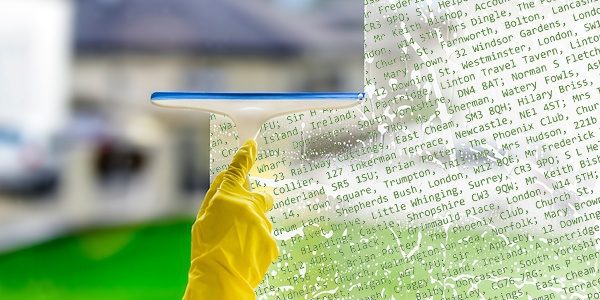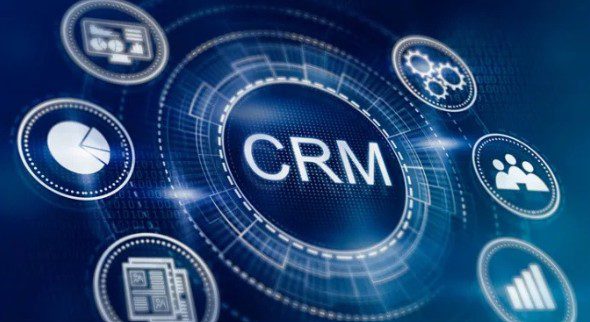It goes without saying that eCommerce will continue to be huge in the years to come, but will you be supplementing your offerings with direct mail? This is a great way of enticing potential customers to shop with you.
A successful direct mail campaign requires accurate data, and if you think there is only one way to clean your address data, think again.
Cleaning data is not always a straightforward process. To do it efficiently and cost-effectively, it is important to apply the right methods in the right order.
When you clean the windows on your house, you always clean the top of the window first and make your way down. There’s a good reason for this – it means you are only cleaning each part of the window once.
It is the same with customer address data. There’s a logical, sensible way to approach the cleaning process, which minimises your cost.
START WITH THE ADDRESS
You should always start by attempting to match the address. In parts of the UK, similar surnames are common. Therefore, it is important to have confidence in the address before attempting to match the person information.
Once you have confidence in the address, you can apply suppression files. The use of these files is usually paid for on a ‘per hit’ basis. This means suppression list companies make more money by finding as many goneaway (moved to a new address) and deceased records as they can.
To avoid wasting money, suppression files should be used in a defined order, using multiple sources, to give the best chance possible of cleaning the data effectively.
FIND THEM ONCE
For example, people often move address towards the end of their life. They may move into a care home, move in with their family, or move to a smaller house. This means people who have recently died are likely to appear on both goneway and deceased files. As you pay ‘per hit’, you want to make sure you only find them once.
If you check your database against goneaway suppression files first, you will incur a hit that tells you the person has moved address. Then, when you check against the deceased files, you will incur another hit that tells you they have died.
However, if you check the deceased files first, they will be removed from your database and you will avoid the second hit (and cost) on the gonaways check.
Of course, using this approach is not in the interest of address data cleaning companies. They make more money from these duplicate hits. So it is important to find out how your address cleaning service or software is approaching this issue.
At Hopewiser, we use a standard checking order to minimise the cost to the client, but this can be amended, if certain data has more relevance. As always, the quality of the match is always more important than maximising the number of matches.
Our aim is to give you a perfect view of your data and we offer a range of cloud-based services, stand-alone software packages, popular integrations and bureau services. This means we can provide the ideal combination of products and services to help you make the most of your data.
To make sure you are not paying too much for your address data cleaning 
, updated 15th February 2023.
Topic: Address Cleanse






